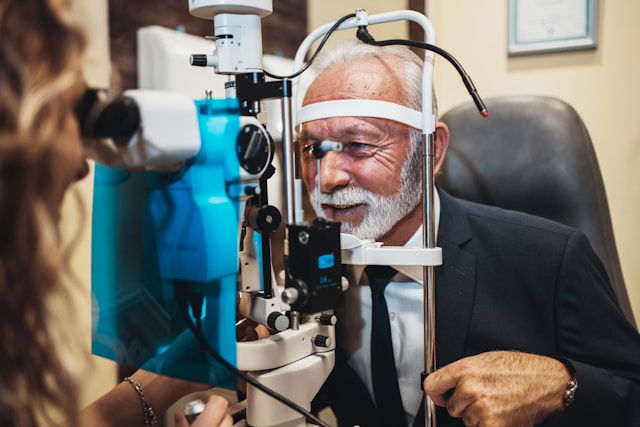
A new study suggests that a specific combination of vitamins may help slow down damage to the optic nerve in people with glaucoma.
The study, published in the journal Cell Reports Medicine, has shown promising results in animals, and researchers have already started a clinical trial in human patients.
Glaucoma is a condition where the optic nerve, which connects the eye to the brain, is gradually damaged. This can lead to vision loss and eventually blindness.
One of the main causes of glaucoma is high pressure inside the eye. Current treatments focus on lowering eye pressure using eye drops, laser treatments, or surgery. However, the results vary from person to person.
Researchers have long suspected that a substance called homocysteine might play a role in glaucoma. But this new study, led by a team at the Karolinska Institutet in Sweden, found otherwise. They discovered that raising homocysteine levels in rats with glaucoma did not make their condition worse.
They also found no link between homocysteine levels in the blood and how fast glaucoma progressed in people. People who are genetically more likely to have high levels of homocysteine were also not more likely to develop glaucoma.
These findings suggest that homocysteine is not causing the disease. Instead, the researchers believe that changes in homocysteine levels may point to problems in how the retina uses certain vitamins. These problems slow down the metabolism in the retina, which may contribute to nerve damage in glaucoma.
James Tribble, one of the lead authors of the study, explained that the retina may lose the ability to use important vitamins. “That’s why we wanted to see if giving these vitamins as supplements could help protect the retina,” he said.
The team tested this idea by giving mice and rats with glaucoma supplements of vitamins B6, B9 (folic acid), and B12, along with choline. The results were promising. In mice with slowly developing glaucoma, optic nerve damage was completely stopped. In rats with a faster-progressing form of glaucoma, the disease was slowed.
Importantly, the eye pressure in these animals was not treated. This means the vitamin supplements worked in a different way from traditional treatments that only lower eye pressure.
Because of these encouraging results, the researchers have now started a clinical trial in Sweden. Patients are being recruited at St. Erik’s Eye Hospital in Stockholm. The trial includes people with both primary open-angle glaucoma, which progresses slowly, and pseudoexfoliation glaucoma, which progresses more quickly.
The researchers hope that these vitamin supplements could become a new way to help people with glaucoma protect their vision — especially those who don’t fully benefit from current treatments.
If you care about nutrition, please read studies about why vitamin K is so important for older people, and this snack food may harm your heart rhythm.
For more health information, please see recent studies about vitamin that may protect you from type 2 diabetes, and results showing this common chemical in food may harm your blood pressure.
Copyright © 2025 Knowridge Science Report. All rights reserved.



